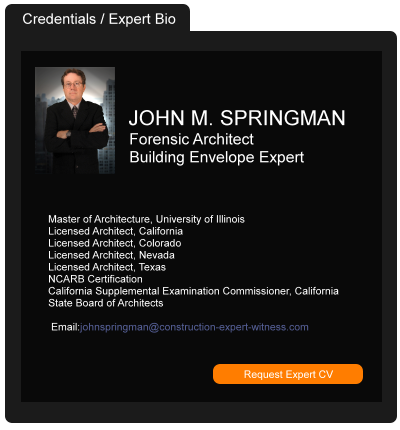Washington Builders Right To Repair Current Law Summary:
Current Law Summary: (SB 5536) The legislature passed a contractor protection bill that reduces contractors' exposure to lawsuits to six years from 12, and gives builders seven "affirmative defenses" to counter defect complaints from homeowners. Claimant must provide notice no later than 45 days before filing action; within 21 days of notice of claim, "construction professional" must serve response; claimant must accept or reject inspection proposal or settlement offer within 30 days; within 14 days following inspection, construction pro must serve written offer to remedy/compromise/settle; claimant can reject all offers; statutes of limitations are tolled until 60 days after period of time during which filing of action is barred under section 3 of the act. This law applies to single-family dwellings and condos.
Building Expert Contractors Licensing
Guidelines Seattle Washington
A license is required for plumbing, and electrical trades. Businesses must register with the Secretary of State.
Association Directory
Local # 4955
335 116th Ave SE
Bellevue, WA 98004
http://www.masterbuildersinfo.com
Seattle Washington Building Expert 10/ 10
Home Builders Association of Kitsap County
Local # 4944
5251 Auto Ctr Way
Bremerton, WA 98312
http://www.kitsaphba.com
Seattle Washington Building Expert 10/ 10
Home Builders Association of Spokane
Local # 4966
5813 E 4th Ave Ste 201
Spokane, WA 99212
http://www.shba.com
Seattle Washington Building Expert 10/ 10
Home Builders Association of North Central
Local # 4957
PO Box 2065
Wenatchee, WA 98801
http://www.nchba.cc
Seattle Washington Building Expert 10/ 10
MBuilders Association of Pierce County
Local # 4977
PO Box 1913 Suite 301
Tacoma, WA 98401
http://www.mbapierce.com
Seattle Washington Building Expert 10/ 10
North Peninsula Builders Association
Local # 4927
PO Box 748
Port Angeles, WA 98362
Seattle Washington Building Expert 10/ 10
Jefferson County Home Builders Association
Local # 4947
PO Box 1399
Port Hadlock, WA 98339
http://www.jeffcohomebuilders.com
Seattle Washington Building Expert 10/ 10
Building Expert News and Information
For Seattle Washington
Eighth Circuit Rejects Retroactive Application of Construction Defect Legislation
Official Tried to Influence Judge against Shortchanged Subcontractor
Potential Construction Liabilities Contractors Need to Know
Court Says KBR Construction Costs in Iraq were Unreasonable
Can a Home Builder Disclaim Implied Warranties of Workmanship and Habitability?
California Precludes Surety from Asserting Pay-When-Paid Provision as Defense to Payment Bond Claim
Flood Sublimits Do Not Apply to Loss Caused by Named Windstorm
Fourth Circuit Clarifies What Qualifies As “Labor” Under The Miller Act
Real Estate & Construction News Roundup (04/18/23) – Clean Energy, Critical Infrastructure and Commercial Concerns
Lenders and Post-Foreclosure Purchasers Have Standing to Make Construction Defect Claims for After-Discovered Conditions
Constructive Notice Established as Obstacle to Relation Back Doctrine
Single-Family Home Starts Seen Catching Up to Surging U.S. Sales
L.A. Makes $4.5 Billion Bet on Olympics After Boston Backs Out
Contract’s Definition of “Substantial Completion” Does Not Apply to Third Party for Purposes of SOL, Holds Court of Appeal
US Homes Face Costly Retrofits for Induction Stoves, EV Chargers
Real Estate & Construction News Roundup (1/24/24) – Long-Term Housing Issues in Hawaii, Underperforming REITs, and Growth in a Subset of the Hotel Sector
Asbestos Client Alert: Court’s Exclusive Gatekeeper Role May not be Ignored or Shifted to a Jury
Client Alert: Restaurant Owed Duty of Care to Driver Killed by Third-Party on Street Adjacent to Restaurant Parking Lot
Roots of Las Vegas Construction Defect Scam Reach Back a Decade
Not Our Territory: 11th Circuit Dismisses Hurricane Damage Appraisal Order for Lack of Jurisdiction
Affordable Harlem Housing Allegedly Riddled with Construction Defects
Narberth Mayor Urges Dubious Legal Action
Detroit Showed What ‘Build Back Better’ Can Look Like
Washington High Court Holds Insurers Bound by Representations in Agent’s Certificates of Insurance
Summarizing Changes to NEPA in the Fiscal Responsibility Act (P.L. 118-5)
Florida “get to” costs do not constitute damages because of “property damage”
Partner Vik Nagpal is Recognized as a Top Lawyer of 2020
Home Prices in 20 U.S. Cities Rose at Faster Pace in January
Newmeyer & Dillion’s Alan Packer Selected to 2018 Northern California Super Lawyers List
A Court-Side Seat: Waters, Walls and Pipelines
Ex-Turner Exec Gets 46 Months for Bloomberg Construction Bribes
Terminating the Notice of Commencement (with a Notice of Termination)
Green Buildings Could Lead to Liabilities
Meet BWBO’s 2024 San Diego Super Lawyers Rising Stars!
Two Years, Too Late: Time-Barred Hurricane Loss is Timely Reminder to Insureds
Don’t Kick the Claim Until the End of the Project: Timely Give Notice and Preserve Your Claims on Construction Projects
The Right to Repair Act (Civ.C §895 et seq.) Applies and is the Exclusive Remedy for a Homeowner Alleging Construction Defects
More on Duty to Defend a Subcontractor
Parking Reform Takes Off on the West Coast
Claims for Bad Faith and Punitive Damages Survive Insurer's Motion for Summary Judgment
Maximizing Contractual Indemnity Rights: Problems with Common Law
Privette: The “Affirmative Contribution” Exception, How Far Does It Go?
Woman Files Suit for Property Damages
Torrey Pines Court Receives Funding for Renovation
Alert: AAA Construction Industry Rules Update
Arizona Supreme Court Confirms a Prevailing Homeowner Can Recover Fees on Implied Warranty Claims
Regions Where Residential Construction Should Boom in 2014
Insurance for Large Construction Equipment Such as a Crane
So You Want to Arbitrate? Better Make Sure Your Contract Covers All Bases
California Appellate Court Holds “Minimal Causal Connection” Satisfies Causation Requirement in All Risk Policies


































































